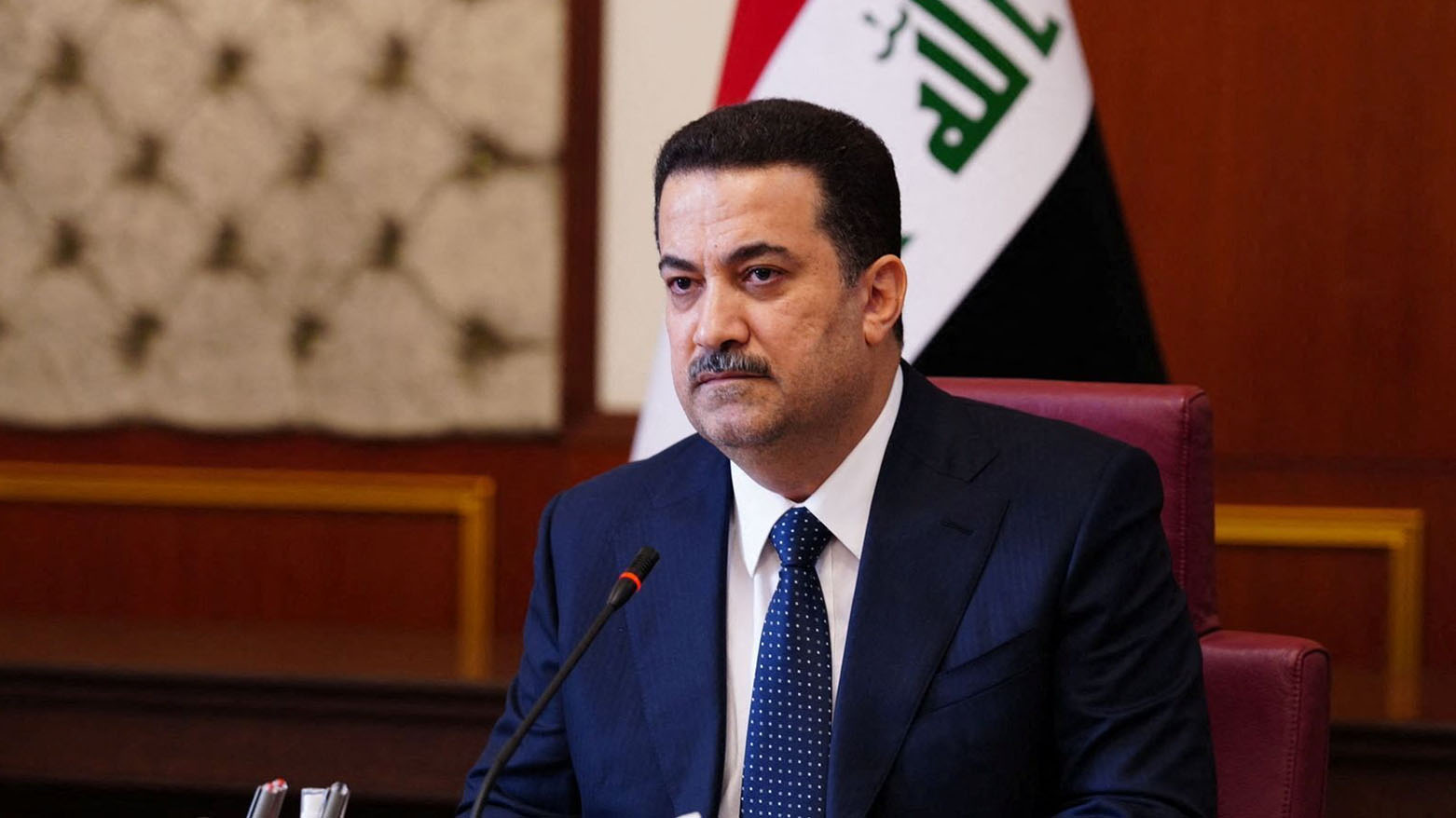Sudani Reconfirmed as Euphrates Movement Leader, Party Calls for Timely Elections
The movement reaffirmed its support for the Sudani-led federal government, crediting it with marked improvements in service delivery, anti-corruption measures, economic revitalization, and the promotion of social welfare.

By Kamaran Aziz
ERBIL (Kurdistan24) – In a display of unity and strategic reaffirmation, the Euphrates Movement (Al-Furaatin) held its second general conference on Friday under the theme “Reconstruction and Development,” renewing its confidence in Mohammed Shia al-Sudani as Secretary-General and calling for timely legislative elections in accordance with constitutional mandates.
According to a statement released by the party on Friday, the conference gathered members of the General Secretariat, the politburo, provincial representatives, and senior organizational leaders, alongside founding and supporting members committed to advancing the party’s national agenda. The event was officially observed and documented by a committee from the Independent High Electoral Commission’s Political Parties and Organizations Department.
The conference’s agenda focused on a comprehensive review of Iraq’s current strategic and transitional challenges, encompassing economic reconstruction, societal stability, and security reform. The deliberations also addressed long-term developmental goals and generational prospects for a democratic and cohesive Iraq, aiming to reinforce the foundations of constitutional governance and respond to the aspirations of citizens nationwide.
Participants underscored that credible elections form the cornerstone of democratic governance and reiterated the imperative to hold them within the constitutional timeline. “It is essential that upcoming elections are conducted in a free, transparent, and impartial environment,” the final statement read, “ensuring peaceful competition among all candidates and voter confidence in the democratic process.”
The Euphrates Movement’s General Conference concluded with a series of far-reaching resolutions and endorsements. Foremost among them was the re-election of Mohammed Shia al-Sudani as Secretary-General and the appointment of a newly constituted General Secretariat to guide the party through the coming phase.
The movement also reaffirmed its support for the Sudani-led federal government, crediting it with marked improvements in service delivery, anti-corruption measures, economic revitalization, and the promotion of social welfare. Attendees praised the administration’s progress in reducing unemployment and poverty while enhancing public infrastructure and the quality of life for ordinary Iraqis.
Central to the party’s reform agenda is a citizen-centric governance model. The conference reiterated the need to prioritize the social and economic needs of the public above all political calculations. The statement called for governance grounded in constitutional and legal principles, pledging cooperation with other national forces to build a political system that serves Iraq’s best interests.
Youth empowerment and women’s participation were highlighted as non-negotiable components of the party’s development strategy. “A modern and resilient Iraqi state must be built on inclusive foundations,” the statement emphasized, noting the government’s collaboration with civil society organizations as a pathway toward broader social engagement.
Echoing the broader calls for post-conflict national cohesion, the Euphrates Movement reaffirmed its commitment to cultivating a unified Iraqi identity, rejecting sectarian divisions and quota-based politics. The party pledged to continue dialogue with all national stakeholders to forge a civic front that champions institutional integrity and consolidates the authority of the state.
Support for Iraq’s security institutions also featured prominently in the conference outcomes. The party reiterated its commitment to empowering national armed forces under constitutional principles, emphasizing their role in protecting public order and the rule of law.
The Euphrates Movement likewise called for strengthening Iraq’s social and moral fabric by harnessing the constructive role of traditional tribal leaders and other social actors in promoting community reconciliation and stability.
On the foreign policy front, the movement urged the adoption of a pragmatic and sovereign international posture. It advocated for a foreign policy grounded in Iraq’s historical legacy, national independence, and international respect, placing the country’s strategic interests at the forefront of all diplomatic engagements.
In closing, the Euphrates Movement emphasized the necessity of mobilizing both governmental and popular energies to meet the pressing demands of the Iraqi people. It called for an evidence-based and economically sound approach to governance, urging all political actors to place Iraq’s supreme national interest at the heart of policymaking and institutional action.
The conference underscored that Iraq stands at a pivotal juncture—a moment that requires steadfast leadership, unified purpose, and renewed commitment to democratic norms and national advancement.
